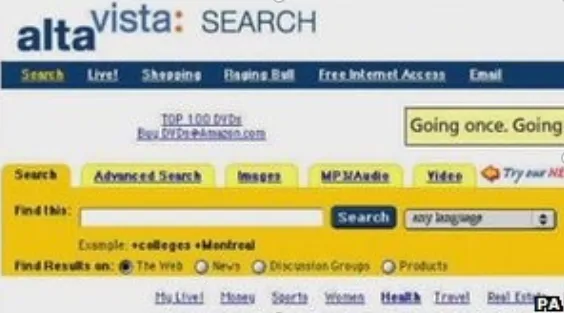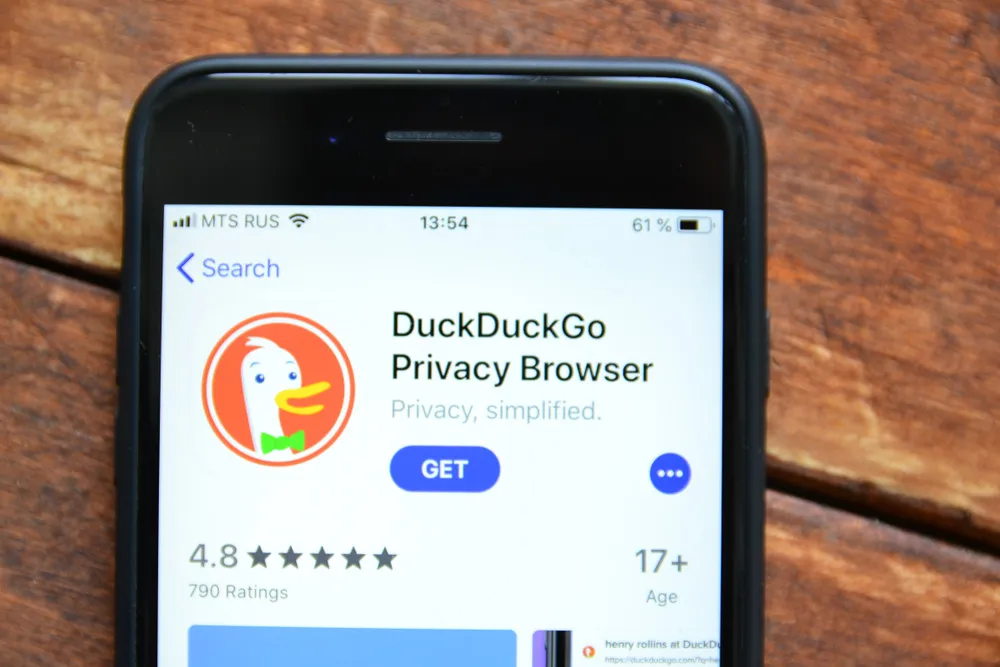For many generations, culture before the Internet was kitschy and beige. This moment was relished for its television jingles, Tetris, disembodied radio babble, and those Nokia ringtones we inherited. The laundry list goes on like a familiar song to forgotten lyrics: there’s the cheer of a Sega Mega Drive powering on; the mechanical suction of a VCR gulping up a taped copy of Terminator 2; a pocketful of Gameboy that help us escape during the holidays.
Yet, from the universe of sounds that connect us with the past again, perhaps the most nostalgic, if symbolic, is that tinny hiss of a dial-up tone. This mechanical sound, achieved through a modem handshake, would fittingly ring in the new millennium, just as analogue became digital, introducing the decade to the misunderstood generation that grew up online.
History sped up a lot since then. The accelerated leaps can be explained in how people used the internet. Once it was surfed, a casual rummage about its forums; then, it was crawled, this time by businesses indexing its dense information into a kind of interactive directory. These became search engines, the post-modern yellow pages, an evolutionary stage in how web users explore, prioritise, and interact with a world of information online.
Like those long-forgotten friends from school, we cast our minds back to those search engines that were once a big part of our lives. All this nostalgia has got us asking, “where are they now?”
The Big Players (from the last decade)
Do People Still Use Yahoo! in 2020?
Once a prominent name in the field of search, Yahoo! has dipped in popularity over the years. Yet, supported through many verticals – News, Finance, Mail, Sports, and so on – Yahoo! has managed to keep a (shrinking) slice of the search marketplace. Against Google’s near 90% share, Yahoo! holds a microscopic 2.84%. Despite its smallish slice of the search market, Yahoo! has managed to retain its worldwide presence with approximately more than 200 million active users.
The oft-cited dot-com bubble, where American tech rose on a bull market to wild and misguided heights, ruptured in 2002 and thereafter Yahoo! seemed to fall into commercial frustration. Nowadays, after an interesting timeline of drama and scandal, the name Yahoo! will ring out nostalgically for many, and is still a practical tool for others.
Why use Yahoo! in 2020?
Nowadays, Yahoo! used less as a directory, but keeps users engaged through its email service and various news portals (including sports and finance). With this self-contained structure, the convenience of Yahoo! seems attractive. There’s also the possibility that more loyal users find comfort in Yahoo!’s sameness. In the wildlands of search, brands change aesthetically all the time. Yahoo! has, over the years, resisted this pageantry.
At times, it reads likes a delicious punchline. Who still uses Yahoo! anyway? But before the ink dries on its obituary, it’s bracing to think that this search engine still holds the third largest share. It’s unfashionable now, but stranger things have made daring comebacks.
Our verdict – what state is this search engine in? We say, it’s still kicking.
What Happened to Ask Jeeves?

*Originally appearing on an Ask Jeeves Ad, as part of The Guardian’s write-up in “Jeeves rises from the dead”.
In 1996, the mantel of search became more familiar.
A household name of sorts, Ask Jeeves arrived to offer a user-friendly platform where users could submit queries in plain English/ natural language. Unlike its competitors, this platform’s early life was symbolised by a fictional valet figure plucked from a PG Wodehouse novel. Jeeves was the marketing brainchild for a commercial e-business that sought popularity for nearly a decade through Q&A.
A cultural caricature, Ask Jeeves wrote a near-narrative into the attraction of searching on its site, poised to catchphrase: Ask Jeeves a question. For a decade, he fielded the curiosities of web-searchers long before Amazon’s Alexa or Samsung’s Bixby turned to voice search for convenience.
Unsteady markets can get sloppy, however, and with competition rising Jeeves retired. He appeared to resurface briefly, but it felt like a stunt, and ever since the Internet stopped asking Jeeves its many questions.
The late Ask.com has since returned to its roots as a tool to answer the “search challenge”.
Why do people use Ask.com?
Once a larger than life inflatable in New York’s Macy’s Thanksgiving parade, Ask seemed to land somewhere between mascot and celebrity. Nowadays, despite its infrequent use by a mild few, the engine has lost its steam. It’s curve, like weakening vitals, dropped in 2015 from 0.4% to a near-fatal 0.01%, according to its active user stats.
A wild guess is that Ask.com’s slim user base is the likely result of that precious, comforting inhale of nostalgia. Or, perhaps, it’s the happy accident of typo.
Our verdict – what state is this search engine in? We say, it’s on its last legs.
What is a Meta Search Engine?

*Dogpile’s gleeful homepage.
Essentially an aggregator, a metasearch engine fetches results from other directories and platforms for a user to browse. In theory, this creates a greater breadth of results. Unlike conventional search engines, metasearch engines can produce richer results, though not necessarily as targeted.
Though it’s uncommon to have a meta engine as the default means of searching the internet, these platforms are often ranking in lists for alternative search engines. Meta feels like a clue. It’s wide sweep of results can be an attractive, though unusual, way to pull a rich list teeming with possible recipes, answers, products, or cat videos.
Dogpile Search Engine
As a legacy name in metasearch engines, Dogpile was an early favourite in the sprint to capture user queries and provide rich results in web exchanges in the 1990s. Whilst it’s still technically an active platform, Dogpile hasn’t captured much of the new momentum that propelled the likes of Google and Facebook into popularity. Yet, unlike its competition, Dogpile can pull results from Google, Yahoo! and others to compile its results. When Dogpile references meta-search, it’s essentially describing crowdsourcing.
Why would someone use Dogpile in 2020?
Alternatives to Google are often relished for their underdog status. They are considerably ‘feel good’, especially when they have kinder mission statements and donate, charitably, to a greater cause. Dogpile, as an example, donates a portion for every search to animal care.
Dogpile was never a site for pretty window-shopping. Once its front page was designed with clumsy clip art, like a Nickelodeon skit. Nowadays it’s a slicker, modern vehicle for search.
Our verdict – what state is this search engine in? We say, it’s still kicking.
Google’s Search Engine History: From Googol to Backrub

*Early Google design as per The Guardian’s report.
When techy American giants scale up, they tend to retire ideas to the “graveyard”, which represents a repository of discontinued services, products, or apps. Despite Google’s long and scandalous romance with the worldwide web, the Silicon Valley firm has flushed its share of ideas. With the rise of social media, for example, the search engine sought a hopeful entry into the market with its Google +. The project suffered a lacklustre debut and never garnered the attention or popularity to help it become a new vertical for Google.
The now-popular Google gets its name from wordplay. Parent company Alphabet, for example, chose its name to intersect with ideas about language. Googol, a technical term for 10100, was the original suggestion for Google. Although internet folklore describes the story as a happy typo that co-founders Larry Page and Sergey Brin eventually, though suspiciously kismet, arrived into.
Even before the typos, the Google founders trialled other names to front their search engine. In 1996, Google’s beginnings were small but ambitious. Named after its backlink strategy, now a popular SEO frame for establishing authority, in its early context here Page and Brin used the name Backrub to enter the market of search. Today, Backrub is an inside joke to the web’s inner circles. But to the public, Google is a hegemony.
The Search Engine Formally Known as MSN

*Microsoft’s MSN portal.
Another key player, Microsoft’s Bing is one of the few “decision engines” to rival Google. Considered the second biggest query platform, Bing’s market share is large enough to establish it apart from the margins. Holding 4.4% in the UK market, Bing is for some a preferred platform, and for others an accidental by-product of buying a new laptop pre-installed with Microsoft Edge.
Bing has shed the failings of its past forms to emerge as a talking point for advertisers, engineers, and the tech community alike. Bing has undergone a long period of transition. Originally known as MSN Search (1998), it then seemed to experiment with the name, Windows Live Search (pre-2009).
Nowadays, Bing continues its rivalry with Google, but only manages to attract enough of the market to place a firm second.
Our verdict – what state is this search engine in? We say, it’s still kicking.
What Happened to AOL?
AOL Search, fashioned as AOL, is still offering its search services to its members. For many, AOL is a pang of nostalgia and less of a platform. At best it’s experienced as a widget – a stream of news, a source of emails – and nothing more seems to be expected from it.
At one point in the past decade, mostly around 2015, it touted 2.2 million users. Yet, since its heyday in the 90s, many critics have noticed its troubled popularity. Those still wedded to AOL are likely doing it out of convenience, nostalgia, or somewhere between the two.
Our verdict – what state is this search engine in? We say, it’s a resident of memory lane.
Memorable Search Engines from the past
Where did Lycos go?
Lycos was, initially, one of the web’s earliest crawler-based search engines. It could be considered a sort of early pioneer, one of the few experiments that helped shape the internet of the moment. Since its rebranding in 1999, complete with a commercial and a mascot, Lycos started to source its result from across the web.
Why use Lycos?
When the options were few, Lycos was a known go-to for navigating the early web. According to its commercial, users can browse cars, vacation destinations, and other desires. Interestingly, the web was less a functional tool and more ornamental, like an Argos catalogue. Even though the web would become largely ecommerce, Lycos never quite received public popularity.
Our verdict – Who’s Lycos again?
What is Altavista?

*Altavista struggles to find clarity in itself (as per the BBC).
Once as popular as Google, AltaVista has changed funding channels and was passed about parent companies until it fell out of favour with the public. It used to offer a large index of web sites and its crawlers are still active to this day. But, critics warn, its early failure to prioritise the richness (relevance, value, etc) of search results. Nowadays, the more successful search engines are those capable of sourcing relevant results.
Why was Altavista used?
Was its popularity and innovation owed to the absence of Google? It’s unlikely, but its untimely (and quick) demise is now a tale about unwise business dealings on-line. Even though it was outpacing its competitors, Altavista was an uncertain tool with oodles of possibility. It just didn’t know what to do with that possibility. Altavista founded many early techniques, such as indexing full content on web pages, but it didn’t reign focus on search results as a long-term strategy.
In 2013, journalists from across the web wrote their unhurried eulogies remembering its prime time in the 90s, which turned out to be more respectful than owner Yahoo!’s one-liner. At least, Yahoo! remembered to redirect altavitsa.com.
Our verdict – what state is this search engine in? We say, it’s a history lesson.
Alternative Search Engines in 2020
The now-and-then of search is a competitive who’s-who of platforms that found mobility in the later ages of the internet, and those that didn’t. Many, unable to compete with Google’s near-monopoly, have reinvented their service to stand apart.
What is DuckDuckGo?

Big search isn’t the only way. One of the smaller actors on an otherwise crowded stage, DuckDuckGo is a happy change of scenery for those frustrated by Google’s scandalous empire. For tech pundits, it’s a curious wrinkle in the search industry: here’s a customizable, privacy-led engine that scrolls on infinitely. Its careful exclusion of the second-page stigma, instead the user is presented with a deep list of results, is refreshingly uncompetitive.
Historically, DuckDyckGo has enjoyed year-on-year growth. Some estimations suggest that as high as 25 million people use the platform monthly, but it prefers to reference its traffic in queries and all-time searches – currently a tasteful 16+ hundred-million queries for 2020.
Squaring up to the scandal of user privacy, this engine assumes a moral stance in the retrieval of information. The mission of this search engine is uniquely about users’ privacy and trying to protect it.
Does Anyone Use DuckDuckGo?
Since braving the market with a goal to tackle its worst parts, DuckDuckGo has amassed a faithful following, which thrives on the growing sense of techy paranoia about surveillance and watchdogging.
DuckDuckGo is, however, fittingly millennial. It’s a self-aware search engine with a feel-happy message about privacy: “tired of being tracked online?” As other platforms like Google become uncool, DuckDuckGo seems to be the most likely to come into fashion.
Our verdict – what state is this search engine in? We say, it’s an underdog.
Where Are They Now?
Through cosmetic changes, market upsets, and the eventual retirement of things, the marketplace of search has changed over the years. Some of the earliest players in search have since lost relevance and faded; this feels, at times, like a familiar narrative in technology. The old world of search, memorised by dial-up, is a dying breed. Old search in a time when we had Excite, HotBot, AltaVista and Netscape now feels like the generation of Milk Carton Kids. There is a newish crop of search engines, the likes of Google and Bing, that outgrow their pasts and push the envelope of the future.






